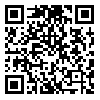Wed, Feb 4, 2026
[Archive]
Volume 38, Issue 1 (1-2024)
Med J Islam Repub Iran 2024 |
Back to browse issues page
Download citation:
BibTeX | RIS | EndNote | Medlars | ProCite | Reference Manager | RefWorks
Send citation to:



BibTeX | RIS | EndNote | Medlars | ProCite | Reference Manager | RefWorks
Send citation to:
Gharavi M, Salem K, Shirazi E. Parenting Styles and Sedation Efficacy in Pediatric Dental Care; A Study in Uncooperative Children Aged 4 to 6 Years: Structural Equation Modeling Approach. Med J Islam Repub Iran 2024; 38 (1) :609-615
URL: http://mjiri.iums.ac.ir/article-1-9237-en.html
URL: http://mjiri.iums.ac.ir/article-1-9237-en.html
Pediatric Dentistry Department, Faculty of Dentistry, Tehran Medical Sciences, Islamic Azad University, Tehran, Iran , k.salem@iautmu.ac.ir
Abstract: (1637 Views)
Background: Behavioral problems in children contribute significantly to non-compliance and lack of cooperation with dentists.This study aimed to assess the impact of parenting styles on the success of conscious sedation with midazolam in uncooperative children aged 4 to 6 years.
Methods: This short-term longitudinal study included ninety-six children aged 4-6 years who were classified as uncooperative according to the Frankl Behavior Rating Scale (Frankl I, II), requiring pulp treatment and Stainless-Steel Crown (SSC) restoration. Midazolam was orally administered at 0.25 mg/kg. Parenting Styles and Dimensions Questionnaire (PSDQ), Strengths and Difficulties Questionnaire (SDQ), and Children's Fear Survey Schedule-Dental Subscale (CFSS-DS). Treatment began at least thirty minutes post-drug administration. Vital signs were monitored using a pulse oximeter. Sedation effectiveness was assessed with the Houpt scale at local anesthesia injection (T0), cavity preparation (T1), restoration (T2), and treatment conclusion (T3). Statistical analysis used Mann-Whitney U test (P < 0.05).
Results: Most parents (69, 71.9%) had an authoritative parenting style, while 10 (10.4%) were authoritarian, and 17 (17.7%) were permissive. Authoritative parenting is associated significantly with sedation success (P = 0.001) and reduced dental fear (P = 0.008). Conversely, authoritarian (P = 0.031) and permissive (P = 0.001) parenting styles are associated with sedation failure. Authoritarian parenting is associated positively with increased dental fear (P = 0.001). No significant association was found between permissive parenting style and dental fear (P > 0.05). No significant association existed between behavioral problems and parenting styles (P > 0.05). There was no significant association observed between permissive parenting style and dental fear (P = 0.279). Similarly, no significant associations were found between behavioral problems and specific parenting styles: authoritative (P = 0.625), authoritarian (P = 0.050), and permissive (P = 0.522).
Conclusion: Understanding parenting styles aids in predicting conscious sedation success with midazolam and assisting in managing uncooperative children during dental procedures.
Methods: This short-term longitudinal study included ninety-six children aged 4-6 years who were classified as uncooperative according to the Frankl Behavior Rating Scale (Frankl I, II), requiring pulp treatment and Stainless-Steel Crown (SSC) restoration. Midazolam was orally administered at 0.25 mg/kg. Parenting Styles and Dimensions Questionnaire (PSDQ), Strengths and Difficulties Questionnaire (SDQ), and Children's Fear Survey Schedule-Dental Subscale (CFSS-DS). Treatment began at least thirty minutes post-drug administration. Vital signs were monitored using a pulse oximeter. Sedation effectiveness was assessed with the Houpt scale at local anesthesia injection (T0), cavity preparation (T1), restoration (T2), and treatment conclusion (T3). Statistical analysis used Mann-Whitney U test (P < 0.05).
Results: Most parents (69, 71.9%) had an authoritative parenting style, while 10 (10.4%) were authoritarian, and 17 (17.7%) were permissive. Authoritative parenting is associated significantly with sedation success (P = 0.001) and reduced dental fear (P = 0.008). Conversely, authoritarian (P = 0.031) and permissive (P = 0.001) parenting styles are associated with sedation failure. Authoritarian parenting is associated positively with increased dental fear (P = 0.001). No significant association was found between permissive parenting style and dental fear (P > 0.05). No significant association existed between behavioral problems and parenting styles (P > 0.05). There was no significant association observed between permissive parenting style and dental fear (P = 0.279). Similarly, no significant associations were found between behavioral problems and specific parenting styles: authoritative (P = 0.625), authoritarian (P = 0.050), and permissive (P = 0.522).
Conclusion: Understanding parenting styles aids in predicting conscious sedation success with midazolam and assisting in managing uncooperative children during dental procedures.
Type of Study: Original Research |
Subject:
Anesthesia
Send email to the article author
| Rights and permissions | |
 |
This work is licensed under a Creative Commons Attribution-NonCommercial 4.0 International License. |








